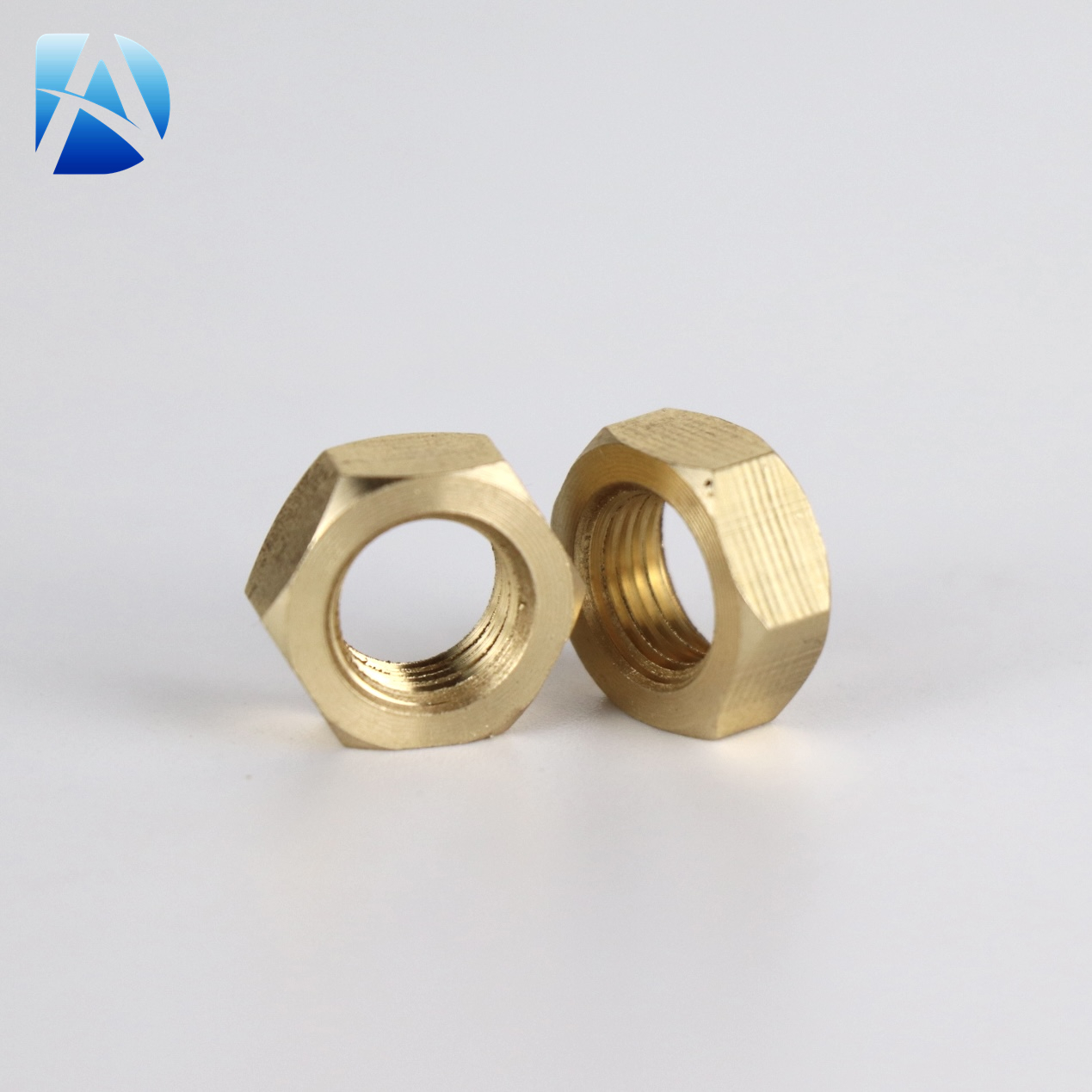English 


Views: 522 Author: Site Editor Publish Time: 2023-11-30 Origin: Site









A Brass Hex Nut is a type of fastener commonly used in various industries due to its unique properties. This article will explore the characteristics that make brass hex nuts a preferred choice for many applications.
Brass, an alloy primarily composed of copper and zinc, is known for its excellent properties. The composition of brass can vary, which affects its mechanical properties and corrosion resistance. The benefits of using brass include its low friction coefficient and high resistance to corrosion.
The shape of a brass hex nut is typically hexagonal, which allows for easy tightening and loosening with wrenches. The size can vary according to the application's requirements. Thread specifications are crucial for compatibility with bolts and screws. Finishing options such as plating or painting can enhance the nut's appearance and performance.
Brass hex nuts exhibit good mechanical properties, including tensile strength and yield strength, which are essential for withstanding the forces applied during fastening. The ductility and malleability of brass allow it to be shaped and formed without breaking.
Brass hex nuts are used in a wide range of applications, from construction where they secure beams and structures, to the automotive industry where they are used in engines and transmissions. They are also common in marine applications due to their corrosion resistance and in electrical and electronic devices for secure connections.
Compared to other types of nuts, brass hex nuts offer superior corrosion resistance, making them ideal for environments where moisture is present. Their non-magnetic property is advantageous in applications where magnetic interference could be an issue. Additionally, the aesthetic appeal of brass adds a touch of elegance to the fastening components.
Proper installation techniques are essential to ensure the longevity and performance of brass hex nuts. Maintenance and cleaning are also important to prevent corrosion and ensure a tight fit. Common issues such as thread stripping can be addressed with proper installation practices.
Brass hex nuts are often compared with steel, stainless steel, and plastic nuts. Each type has its advantages and disadvantages, with brass offering a balance of strength, corrosion resistance, and appearance.
Quality standards for brass hex nuts are set by various industry organizations to ensure consistency and reliability. Quality control measures are in place during manufacturing to check for defects. Testing procedures are conducted to verify that the nuts meet the required mechanical and physical properties.
In conclusion, brass hex nuts are versatile fasteners with a range of characteristics that make them suitable for many applications. Their material composition, physical and mechanical properties, and applications highlight why they are a preferred choice in various industries. As technology advances, we can expect further improvements in the design and performance of brass hex nuts.
